Grant Linley
@glinley.bsky.social
Ecology | Fire ecology | Conservation biology | Camera traps | Postdoctoral fellow | University of Queensland
Reposted by Grant Linley
What would you share with an earlier version of yourself?

What I wish I knew: 33 thoughts for early career researchers
Thirty three reflections I wish someone had shared with me early in my research career.
predirections.substack.com
November 11, 2025 at 12:41 AM
What would you share with an earlier version of yourself?
Reposted by Grant Linley
Two PhD student positions on Fire Resilience of Amazon Forests (Application deadline Nov 26), Wageningen
@masha-vandersande.bsky.social @w-u-r.bsky.social
www.wur.nl/nl/vacature/...
@masha-vandersande.bsky.social @w-u-r.bsky.social
www.wur.nl/nl/vacature/...
November 5, 2025 at 10:36 PM
Two PhD student positions on Fire Resilience of Amazon Forests (Application deadline Nov 26), Wageningen
@masha-vandersande.bsky.social @w-u-r.bsky.social
www.wur.nl/nl/vacature/...
@masha-vandersande.bsky.social @w-u-r.bsky.social
www.wur.nl/nl/vacature/...
Reposted by Grant Linley
I have been developing techniques for the automated assessment of fire events across Australia using NAFI (firenorth.org.au) data. These are the top 10 largest across Australia so far this year. 3 of them are > 1 million hectares (Terra-Fires, 100x mega fire). The year is not over.

October 26, 2025 at 11:47 PM
I have been developing techniques for the automated assessment of fire events across Australia using NAFI (firenorth.org.au) data. These are the top 10 largest across Australia so far this year. 3 of them are > 1 million hectares (Terra-Fires, 100x mega fire). The year is not over.
Reposted by Grant Linley
Real time data coming out of the world’s climate measurement systems should be stopping us in our tracks. The latest estimate shows that, this week, the Earth is 1.9°C warmer than before we began burning fossil fuels.
#climatecrisis #ClimateEmergency #auspol www.lyrebirddreaming.com/post/we-re-t...
#climatecrisis #ClimateEmergency #auspol www.lyrebirddreaming.com/post/we-re-t...

We’re Touching 1.9°C - And It’s Only 2025
Real time data coming out of the world’s climate measurement systems should be stopping us in our tracks. The latest estimate by climate scientist Dr Karsten Haustein shows that, this week, the Earth ...
www.lyrebirddreaming.com
October 20, 2025 at 12:29 AM
Real time data coming out of the world’s climate measurement systems should be stopping us in our tracks. The latest estimate shows that, this week, the Earth is 1.9°C warmer than before we began burning fossil fuels.
#climatecrisis #ClimateEmergency #auspol www.lyrebirddreaming.com/post/we-re-t...
#climatecrisis #ClimateEmergency #auspol www.lyrebirddreaming.com/post/we-re-t...
Reposted by Grant Linley
A surge in global temperatures has caused widespread bleaching and death of warm-water corals around the world.
go.nature.com/4n8cvHn
go.nature.com/4n8cvHn

Coral die-off marks Earth’s first climate ‘tipping point’, scientists say
A surge in global temperatures has caused widespread bleaching and death of warm-water corals around the world.
go.nature.com
October 13, 2025 at 9:33 AM
A surge in global temperatures has caused widespread bleaching and death of warm-water corals around the world.
go.nature.com/4n8cvHn
go.nature.com/4n8cvHn
Reposted by Grant Linley
Watch to the end.
Dr. Jane Goodall filmed an interview with Netflix in March 2025 that she understood would only be released after her death.
October 5, 2025 at 3:40 PM
Watch to the end.
Reposted by Grant Linley
Out today in @science.org, we show wildfire disasters have surged in the last decade, as climate change intensifies fire weather and exacerbates other vulnerabilities.
📄 www.science.org/doi/10.1126/...
With @pyrogeog.bsky.social @climate-guy.bsky.social
📄 www.science.org/doi/10.1126/...
With @pyrogeog.bsky.social @climate-guy.bsky.social

Climate-linked escalation of societally disastrous wildfires
Climate change and land mismanagement are creating increasingly fire-prone built and natural environments. However, despite worsening fire seasons, evidence is lacking globally for trends in socially ...
www.science.org
October 2, 2025 at 11:06 PM
Out today in @science.org, we show wildfire disasters have surged in the last decade, as climate change intensifies fire weather and exacerbates other vulnerabilities.
📄 www.science.org/doi/10.1126/...
With @pyrogeog.bsky.social @climate-guy.bsky.social
📄 www.science.org/doi/10.1126/...
With @pyrogeog.bsky.social @climate-guy.bsky.social
Reposted by Grant Linley
🔥New Paper!🔥 from Julianna Santos,
@ltkelly.bsky.social @lluisbrotons.bsky.social @urbanfrogger.bsky.social @cristinaaponte.bsky.social , Lauren Ponisio, Stephen Mason, and David Keith!
onlinelibrary.wiley.com/doi/10.1111/...
@ltkelly.bsky.social @lluisbrotons.bsky.social @urbanfrogger.bsky.social @cristinaaponte.bsky.social , Lauren Ponisio, Stephen Mason, and David Keith!
onlinelibrary.wiley.com/doi/10.1111/...

The Mechanisms Through Which Fire Drives Population Change in Terrestrial Biota
Understanding the mechanisms through which fire influences populations is necessary to protect species from fire regime change. We develop a cross-taxa framework that identifies mechanisms through wh...
onlinelibrary.wiley.com
September 22, 2025 at 11:41 AM
🔥New Paper!🔥 from Julianna Santos,
@ltkelly.bsky.social @lluisbrotons.bsky.social @urbanfrogger.bsky.social @cristinaaponte.bsky.social , Lauren Ponisio, Stephen Mason, and David Keith!
onlinelibrary.wiley.com/doi/10.1111/...
@ltkelly.bsky.social @lluisbrotons.bsky.social @urbanfrogger.bsky.social @cristinaaponte.bsky.social , Lauren Ponisio, Stephen Mason, and David Keith!
onlinelibrary.wiley.com/doi/10.1111/...
Reposted by Grant Linley
New paper out today with @biodiversityguy.bsky.social and @lizardlab.bsky.social
royalsocietypublishing.org/doi/10.1098/...
royalsocietypublishing.org/doi/10.1098/...

From anecdote to evidence: experimental validation of fire-cue recognition in Australian sleepy lizards | Biology Letters
Fire has shaped the evolution of both plants and animals. Animals exposed to fire throughout their evolutionary history are predicted to exhibit behavioural adaptations that enhance survival during fire. Here, we investigated whether Australian sleepy ...
royalsocietypublishing.org
September 17, 2025 at 6:33 AM
New paper out today with @biodiversityguy.bsky.social and @lizardlab.bsky.social
royalsocietypublishing.org/doi/10.1098/...
royalsocietypublishing.org/doi/10.1098/...
Reposted by Grant Linley
Hot off the press! Check out our new paper on sleepy lizard aka shingleback skink fire cue discrimination led by @ecolojolly.bsky.social DM if you want a PDF.

September 17, 2025 at 2:38 AM
Hot off the press! Check out our new paper on sleepy lizard aka shingleback skink fire cue discrimination led by @ecolojolly.bsky.social DM if you want a PDF.
Reposted by Grant Linley
We have a new paper developing methods for looking at bird-fire macroecology. What’s most fascinating to me is that the magnitude *and* direction of fire effects can vary enormously across a species range. Stationarity is dead!! Long live non-stationarity!!
doi.org/10.1002/fee....
doi.org/10.1002/fee....

Evaluating macroecological fire impacts on bird populations
Fire regimes are context-dependent, as are the ways that animals respond. However, most information on animal responses to fire comes from short-term local field studies, which are hard to extrapolat....
doi.org
September 5, 2025 at 3:59 PM
We have a new paper developing methods for looking at bird-fire macroecology. What’s most fascinating to me is that the magnitude *and* direction of fire effects can vary enormously across a species range. Stationarity is dead!! Long live non-stationarity!!
doi.org/10.1002/fee....
doi.org/10.1002/fee....
Reposted by Grant Linley
our paper on how light pollution affects bird vocal behavior is out today in Science!!
w/ @brentpease.bsky.social
www.science.org/doi/10.1126/...
w/ @brentpease.bsky.social
www.science.org/doi/10.1126/...

August 21, 2025 at 11:01 PM
our paper on how light pollution affects bird vocal behavior is out today in Science!!
w/ @brentpease.bsky.social
www.science.org/doi/10.1126/...
w/ @brentpease.bsky.social
www.science.org/doi/10.1126/...
Reposted by Grant Linley
New paper: The role of fire on Earth
doi.org/10.1093/bios... BioScience @aibsbiology.bsky.social
Fire affects all major components of the Earth system: atmosphere, hydrosphere, geosphere, anthroposphere, & biosphere. Fire is an intrinsic factor on our planet.
🧪🌍🔥🌳🌿🌐 wildfire
doi.org/10.1093/bios... BioScience @aibsbiology.bsky.social
Fire affects all major components of the Earth system: atmosphere, hydrosphere, geosphere, anthroposphere, & biosphere. Fire is an intrinsic factor on our planet.
🧪🌍🔥🌳🌿🌐 wildfire

August 25, 2025 at 10:59 PM
New paper: The role of fire on Earth
doi.org/10.1093/bios... BioScience @aibsbiology.bsky.social
Fire affects all major components of the Earth system: atmosphere, hydrosphere, geosphere, anthroposphere, & biosphere. Fire is an intrinsic factor on our planet.
🧪🌍🔥🌳🌿🌐 wildfire
doi.org/10.1093/bios... BioScience @aibsbiology.bsky.social
Fire affects all major components of the Earth system: atmosphere, hydrosphere, geosphere, anthroposphere, & biosphere. Fire is an intrinsic factor on our planet.
🧪🌍🔥🌳🌿🌐 wildfire
Reposted by Grant Linley
Thrilled to share our new article in @pnas.org highlighting global gaps in where we study animal movement—and outlining the next generation of smart bio-loggers.
👉 Read the full study in PNAS: lnkd.in/exP8NCeZ
1/
👉 Read the full study in PNAS: lnkd.in/exP8NCeZ
1/
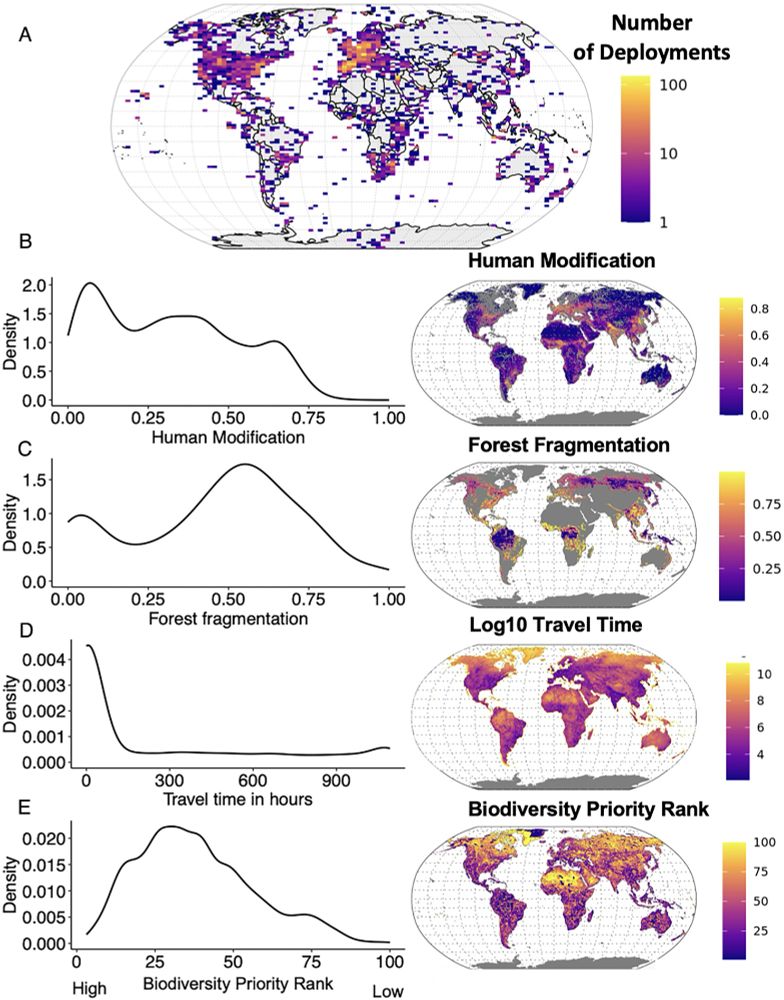
July 30, 2025 at 12:03 AM
Thrilled to share our new article in @pnas.org highlighting global gaps in where we study animal movement—and outlining the next generation of smart bio-loggers.
👉 Read the full study in PNAS: lnkd.in/exP8NCeZ
1/
👉 Read the full study in PNAS: lnkd.in/exP8NCeZ
1/
Reposted by Grant Linley
The first paper from my postdoc is finally out! In collaboration with @kaitlyngaynor.bsky.social and Amy Angert, we outline how behavioral plasticity influences animal species’ distributions and can improve our understanding of range shifts under climate change! www.sciencedirect.com/science/arti...
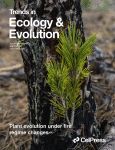
Linking individual animal behavior to species range shifts under climate change
Climate change has led animal species to shift their ranges to greater elevations, latitudes, and depths, tracking their preferred abiotic niche. Howe…
www.sciencedirect.com
July 17, 2025 at 5:52 PM
The first paper from my postdoc is finally out! In collaboration with @kaitlyngaynor.bsky.social and Amy Angert, we outline how behavioral plasticity influences animal species’ distributions and can improve our understanding of range shifts under climate change! www.sciencedirect.com/science/arti...
Reposted by Grant Linley
Wildfire activity worldwide was higher in 2023 and 2024 than in any year since monitoring began in 2001. Tropical forests are seeing particularly high rates of forest loss. Some forest systems may be approaching tipping points of ecosystem change. In PNAS: www.pnas.org/doi/10.1073/...
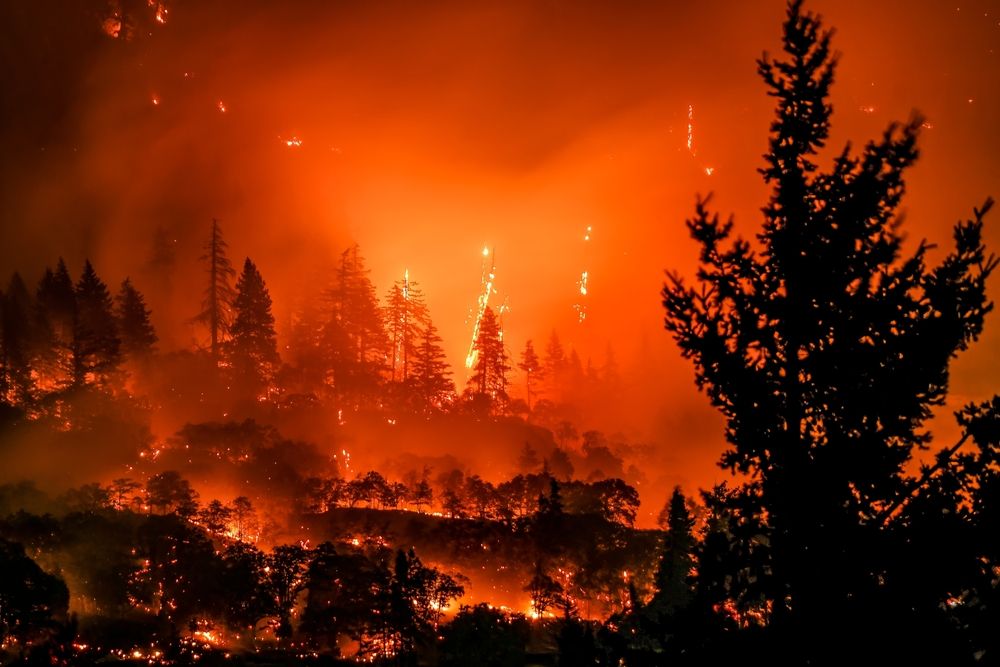
August 6, 2025 at 8:22 PM
Wildfire activity worldwide was higher in 2023 and 2024 than in any year since monitoring began in 2001. Tropical forests are seeing particularly high rates of forest loss. Some forest systems may be approaching tipping points of ecosystem change. In PNAS: www.pnas.org/doi/10.1073/...
Reposted by Grant Linley
What are the evolutionary implications of changes in fire regimes for animals?
We explore this in our new paper in @globalchangebio.bsky.social
📖 onlinelibrary.wiley.com/doi/10.1111/...
with @mwtingley.bsky.social @jgpausas.bsky.social & team
#Biodiversity #FireEcology #EcoEvo 🔥🦎🧬
We explore this in our new paper in @globalchangebio.bsky.social
📖 onlinelibrary.wiley.com/doi/10.1111/...
with @mwtingley.bsky.social @jgpausas.bsky.social & team
#Biodiversity #FireEcology #EcoEvo 🔥🦎🧬
July 25, 2025 at 6:55 AM
What are the evolutionary implications of changes in fire regimes for animals?
We explore this in our new paper in @globalchangebio.bsky.social
📖 onlinelibrary.wiley.com/doi/10.1111/...
with @mwtingley.bsky.social @jgpausas.bsky.social & team
#Biodiversity #FireEcology #EcoEvo 🔥🦎🧬
We explore this in our new paper in @globalchangebio.bsky.social
📖 onlinelibrary.wiley.com/doi/10.1111/...
with @mwtingley.bsky.social @jgpausas.bsky.social & team
#Biodiversity #FireEcology #EcoEvo 🔥🦎🧬
Reposted by Grant Linley
Experts fear the leafy seadragon may be disappearing from areas hit by SA’s toxic algal bloom. With a limited range, losing local populations could mean losing the species entirely. Urgent action is needed to prevent permanent biodiversity loss.
au.news.yahoo.com/50...
au.news.yahoo.com/50...
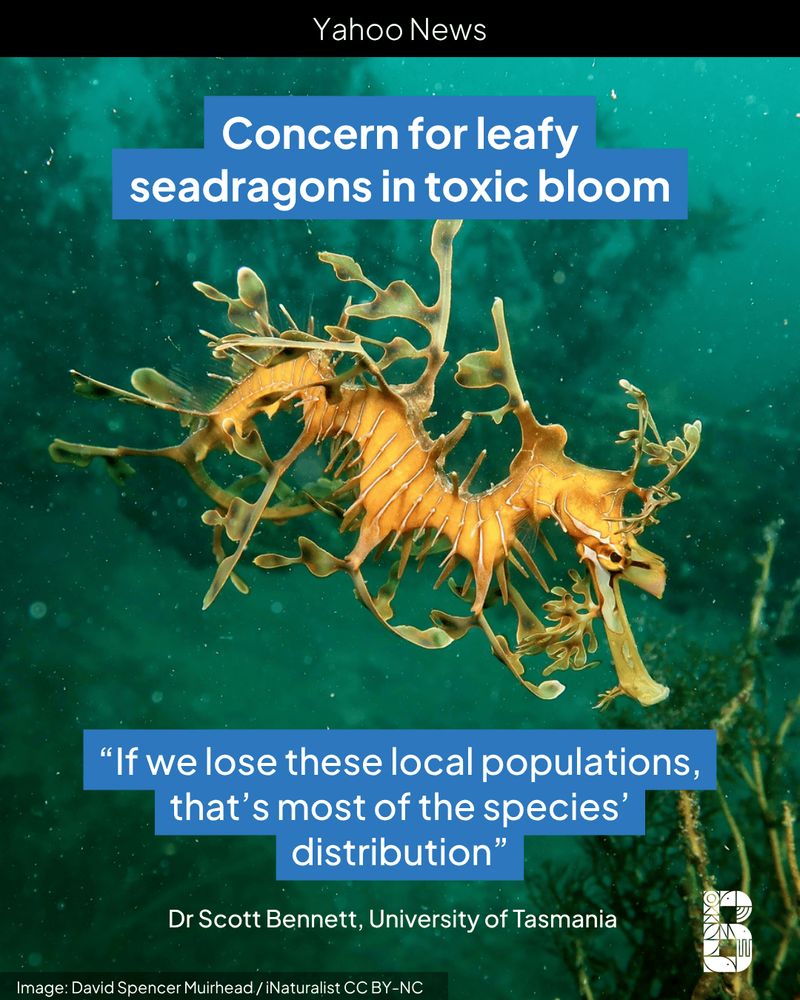
July 24, 2025 at 9:30 AM
Experts fear the leafy seadragon may be disappearing from areas hit by SA’s toxic algal bloom. With a limited range, losing local populations could mean losing the species entirely. Urgent action is needed to prevent permanent biodiversity loss.
au.news.yahoo.com/50...
au.news.yahoo.com/50...
Reposted by Grant Linley
And we develop the concept of 'trait–fire mismatch':
A type of phenotype-environment mismatch that brings together ecological and evolutionary fire science and supports forecasts of fire-driven environmental change.
A type of phenotype-environment mismatch that brings together ecological and evolutionary fire science and supports forecasts of fire-driven environmental change.

July 22, 2025 at 7:48 AM
And we develop the concept of 'trait–fire mismatch':
A type of phenotype-environment mismatch that brings together ecological and evolutionary fire science and supports forecasts of fire-driven environmental change.
A type of phenotype-environment mismatch that brings together ecological and evolutionary fire science and supports forecasts of fire-driven environmental change.
Reposted by Grant Linley
Can plants keep up with fire regime changes through evolution?
doi.org/10.1016/j.tr... | @cp-trendsecolevo.bsky.social
What about animals?
onlinelibrary.wiley.com/doi/10.1111/... | @globalchangebio.bsky.social
Trait–fire mismatching
Food for thought by @ltkelly.bsky.social et al
🧪🌍🔥🌳🌿🌾🌐 #ecoevo
doi.org/10.1016/j.tr... | @cp-trendsecolevo.bsky.social
What about animals?
onlinelibrary.wiley.com/doi/10.1111/... | @globalchangebio.bsky.social
Trait–fire mismatching
Food for thought by @ltkelly.bsky.social et al
🧪🌍🔥🌳🌿🌾🌐 #ecoevo
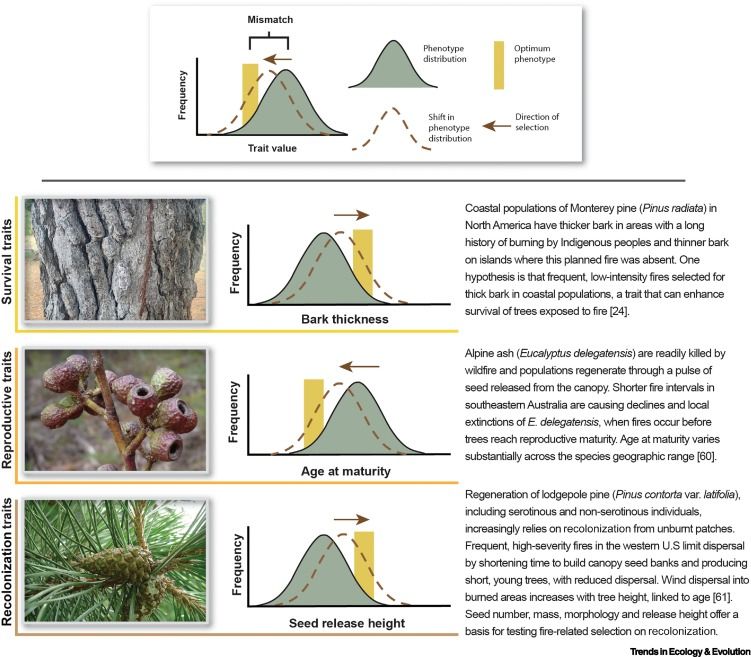
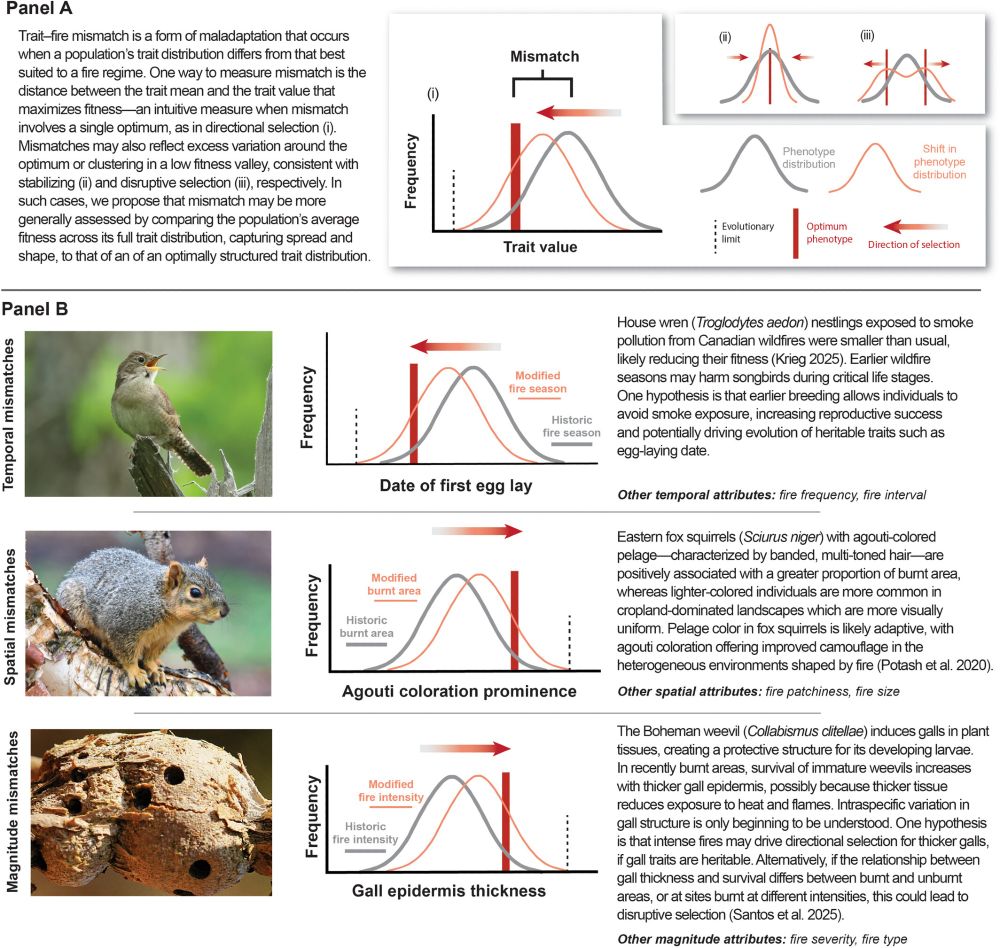
July 23, 2025 at 2:02 PM
Can plants keep up with fire regime changes through evolution?
doi.org/10.1016/j.tr... | @cp-trendsecolevo.bsky.social
What about animals?
onlinelibrary.wiley.com/doi/10.1111/... | @globalchangebio.bsky.social
Trait–fire mismatching
Food for thought by @ltkelly.bsky.social et al
🧪🌍🔥🌳🌿🌾🌐 #ecoevo
doi.org/10.1016/j.tr... | @cp-trendsecolevo.bsky.social
What about animals?
onlinelibrary.wiley.com/doi/10.1111/... | @globalchangebio.bsky.social
Trait–fire mismatching
Food for thought by @ltkelly.bsky.social et al
🧪🌍🔥🌳🌿🌾🌐 #ecoevo
Reposted by Grant Linley
4 year fixed term postdoc position in Tasmania, Australia. Drones, camera traps, population monitoring.
careers.utas.edu.au/en/job/50114...
careers.utas.edu.au/en/job/50114...
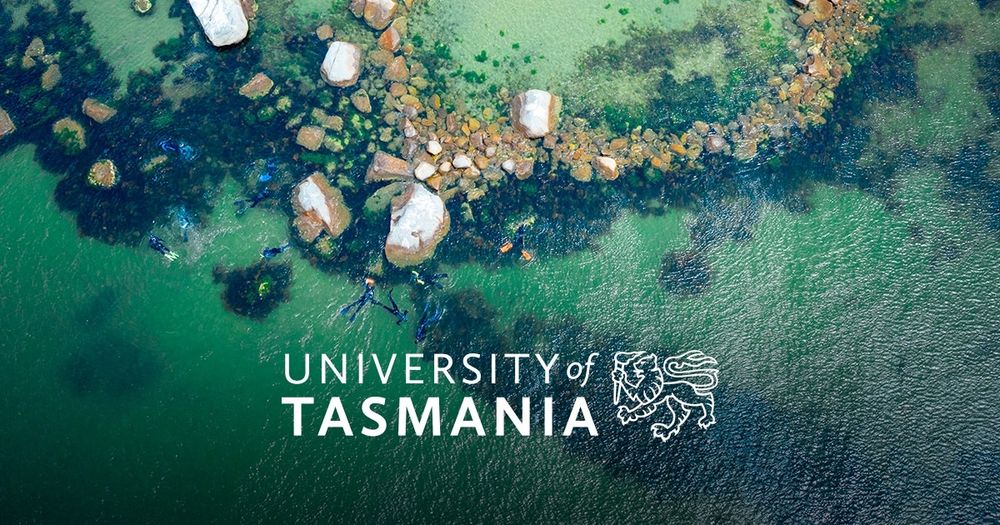
Current Vacancies
careers.utas.edu.au
July 16, 2025 at 5:03 AM
4 year fixed term postdoc position in Tasmania, Australia. Drones, camera traps, population monitoring.
careers.utas.edu.au/en/job/50114...
careers.utas.edu.au/en/job/50114...
The last of my PhD papers. This was a fun project uncovering species diel changes in response to wildfire.
🔥🌿The impact of gigafire on vegetation structure, terrestrial vertebrate abundance and diel activity
vist.ly/3y9st
#BlackSummer #EcologicalResilience #FireSeverity #SpeciesActivity #TemporalActivity #VegetationRecovery #Wildfire
vist.ly/3y9st
#BlackSummer #EcologicalResilience #FireSeverity #SpeciesActivity #TemporalActivity #VegetationRecovery #Wildfire
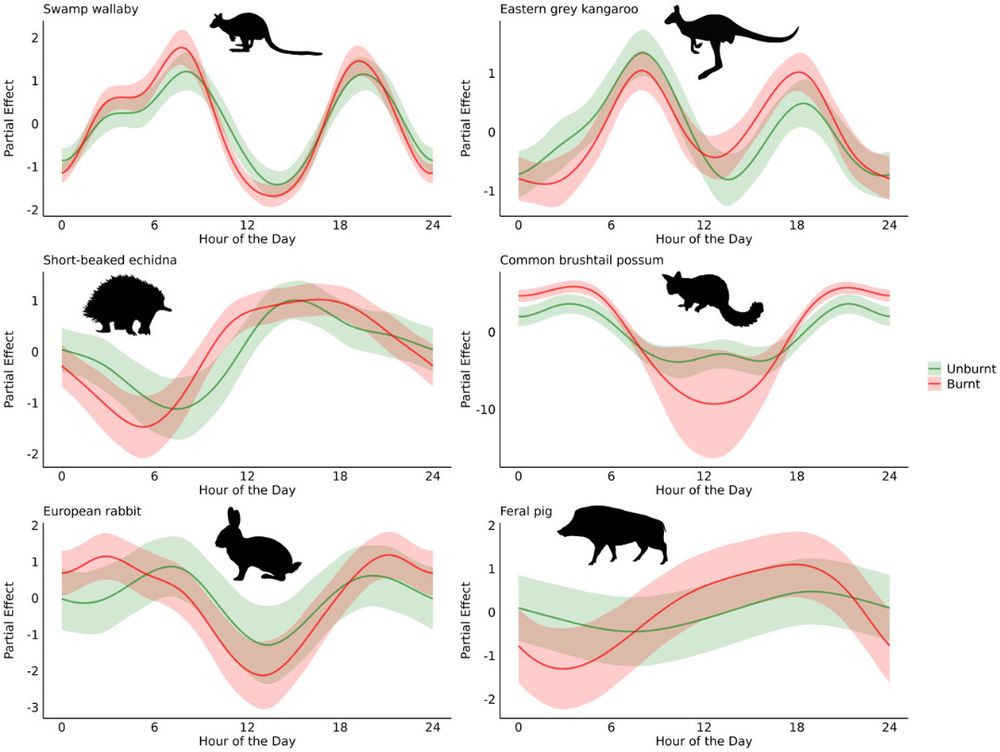
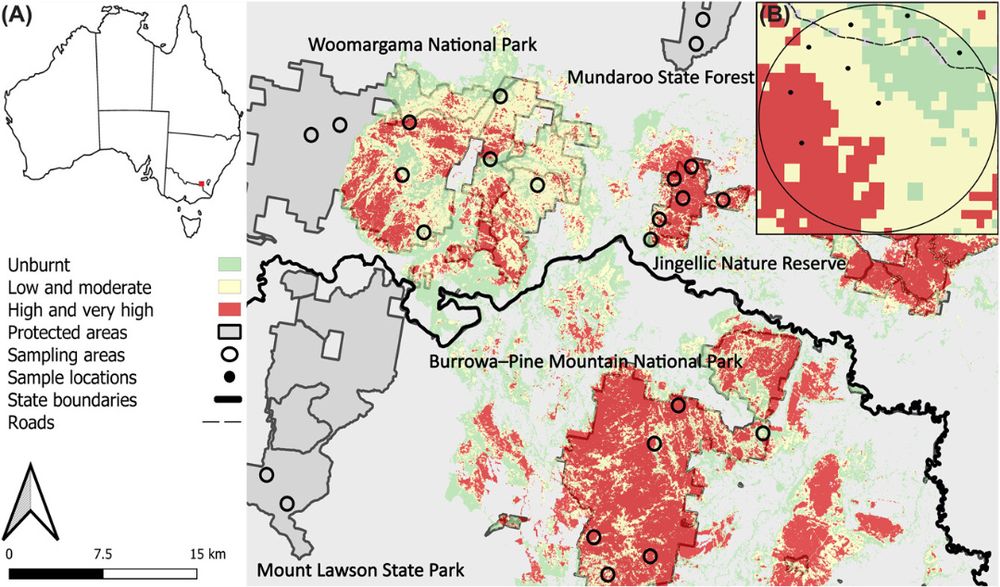
July 17, 2025 at 10:23 PM
The last of my PhD papers. This was a fun project uncovering species diel changes in response to wildfire.
Reposted by Grant Linley
Job alert: 2.75 -3 yr postdoc in Mathematical ecology/epidemiology or Decision Sci at the University of Queensland on the value of information for decisions with @hugepossum.bsky.social @katehelmstedt.bsky.social Katriona Shea & myself #MathSky 🌍 uq.wd3.myworkdayjobs.com/uqcareers/jo... please share
Postdoctoral Research Fellow in Mathematical Ecology and Environmental Decision Science
School of Mathematics and Physics Full-time, fixed-term position for up to 2 years and 9 months with the possibility up to 3 years, depending on funding availability. Base salary will be in the range ...
uq.wd3.myworkdayjobs.com
July 16, 2025 at 11:30 PM
Job alert: 2.75 -3 yr postdoc in Mathematical ecology/epidemiology or Decision Sci at the University of Queensland on the value of information for decisions with @hugepossum.bsky.social @katehelmstedt.bsky.social Katriona Shea & myself #MathSky 🌍 uq.wd3.myworkdayjobs.com/uqcareers/jo... please share
Reposted by Grant Linley
🔥 Hot off the press ! 🔥
Originally “sparked” from a conversation between @sarahmccg.bsky.social , Luke Collins , @brian-j-harvey.bsky.social , Meg Krawchuk and I. besjournals.onlinelibrary.wiley.com/doi/10.1111/...
Originally “sparked” from a conversation between @sarahmccg.bsky.social , Luke Collins , @brian-j-harvey.bsky.social , Meg Krawchuk and I. besjournals.onlinelibrary.wiley.com/doi/10.1111/...

July 16, 2025 at 7:39 PM
🔥 Hot off the press ! 🔥
Originally “sparked” from a conversation between @sarahmccg.bsky.social , Luke Collins , @brian-j-harvey.bsky.social , Meg Krawchuk and I. besjournals.onlinelibrary.wiley.com/doi/10.1111/...
Originally “sparked” from a conversation between @sarahmccg.bsky.social , Luke Collins , @brian-j-harvey.bsky.social , Meg Krawchuk and I. besjournals.onlinelibrary.wiley.com/doi/10.1111/...
Reposted by Grant Linley
Happy to share our new paper: we show that human-caused climate change is raising the odds of extreme climate-driven fire years across forested regions of the globe
@climate-guy.bsky.social @pyrogeog.bsky.social
rdcu.be/evJkX
#ClimateChange #Wildfires
@climate-guy.bsky.social @pyrogeog.bsky.social
rdcu.be/evJkX
#ClimateChange #Wildfires
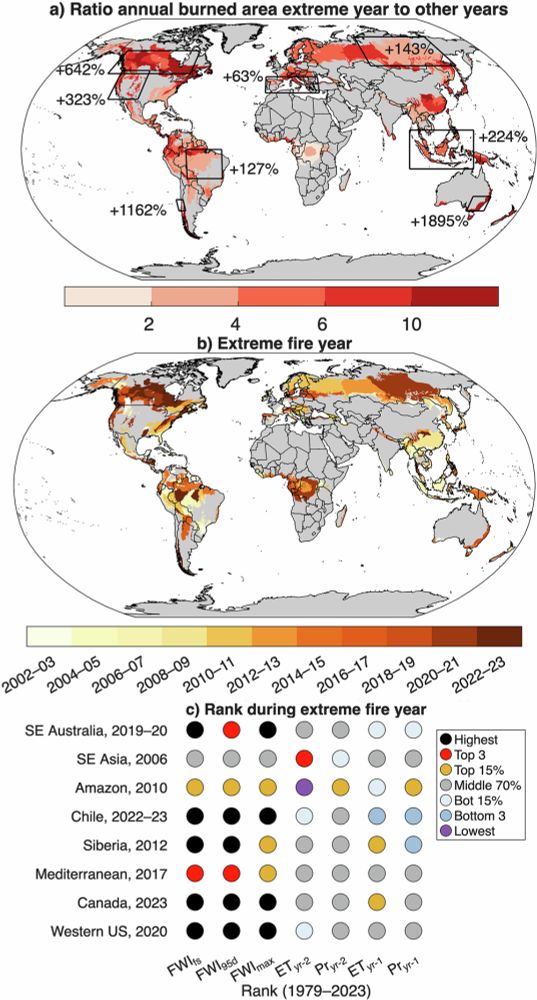
Climate change has increased the odds of extreme regional forest fire years globally
Nature Communications - The authors show that extreme fire years in global forests align with rare fire weather extremes. Climate change has made such extremes 88-152% more probable. These findings...
rdcu.be
July 11, 2025 at 6:57 AM
Happy to share our new paper: we show that human-caused climate change is raising the odds of extreme climate-driven fire years across forested regions of the globe
@climate-guy.bsky.social @pyrogeog.bsky.social
rdcu.be/evJkX
#ClimateChange #Wildfires
@climate-guy.bsky.social @pyrogeog.bsky.social
rdcu.be/evJkX
#ClimateChange #Wildfires

